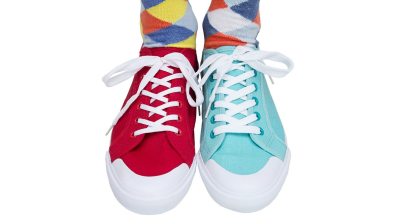
Culture is defined by the Merriam-Webster dictionary as the “customary beliefs, social forms, and material traits of a racial, religious, or social group.” Culture does not belong to just one person, it belongs to a group of people. I guess because culture is shared there is some confusion as to who gets to do what. There is a very thin line between cultural appropriation and cultural appreciation which creates a lot of issues. I once watched a video on YouTube about cultural appropriation and some of the comments under the video were:
“You’re fighting racism with more racism. You’re telling people , ‘Oh, you should just stay in your culture. Don’t step out of line.’ All you’re doing is putting people in boxes and telling them they can’t step out!”
“Telling someone they can’t use an outfit because of their skin color or because they were born in a different place sounds a bit racist.”
“So everyone can do, wear, and say what they want except white people? Mkay.”
This is a topic that is understandably a bit confusing because for those with good intentions it’s always a question of “how do I show my appreciation for this culture without appropriating it?” There are also the others who simply do not care. For all of you who do not care, imagine this: what if wearing two different color shoes was significant to your culture because it honors the dead and has a religious meaning. But you get bullied about it everyday, being told how “weird” you are or how “inappropriate” you look because of this one thing you do differently. Years later you’re in college and someone who you know isn’t a part your culture walks in with mismatching shoes and the entire school is talking about how stylish that person is, how that person is setting a trend, original and paving the way for others because this is “never seen/done before.” How would you feel about that? How would you feel knowing that you were bullied for years and CONTINUE to be bullied for something that was your norm, only to now have someone else praised and given ownership to it.
“It’s just hair”, “it’s just clothes”, “it’s just a style”, it’s just…” No it’s not – it’s not “just” this or that. It is a part of who these people are and what helps to define them as unique individuals.
Cultural appropriation is where specific things from a culture are taken and used out of its cultural context and without giving credit or recognition to the people who created it. This removes it’s cultural aspects and detaches it from its culture. It all comes back to power and the system of racism. White people have the power in society as we all know (or should know). This power makes it very easy for them to take what isn’t theirs, use it as their own, and then get credited as being the founders, creators etc. as we’ve seen throughout history. Who’s going to listen to the little guy in the back saying “no, that’s mine” when you have someone else more powerful taking credit for it?
There are no set rules to this and so I understand not knowing that you might have appropriated a culture; however, it is an issue when you are being blatantly disrespectful and it needs to stop. “It’s just hair”, “it’s just clothes”, “it’s just a style”, it’s just…” No it’s not – it’s not “just” this or that. It is a part of who these people are and what helps to define them as unique individuals. Plagiarism we understand, but saying no to cultural appropriation is “reverse racism”? Mkay.
This post was really powerful to me. I always understood the basis of cultural appropriation and that it is wrong to do those things, but you made it very easy to follow why and how those things function. Especially for people of color I can imagine how frustrating it must be when people try to mimic black hair, styles, etc. when black people have experienced oppression for these different traits. I appreciate your explanation because now I feel like I know a little more about the topic and how to go about conversations about it!
Yes! I appreciate how you mentioned the power dynamic that is inherent within cultural appropriation…because white people can just ignore the original creators, as you said, without facing repercussions. This power dynamic is so important to acknowledge because with that power dynamic should be responsibility…it should be the responsibility of white people to properly research their style choices, their hair or their way of speaking so they can understand if they are culturally appropriating something, and as a result, adjust accordingly.